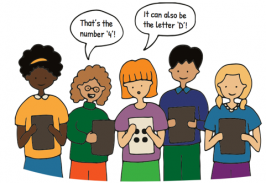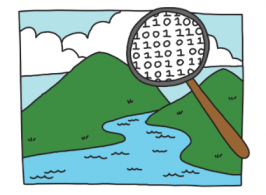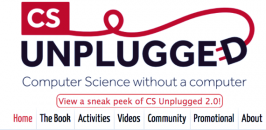Computational thinking unplugged

Units of work and lesson plans have been developed to support teachers in using a practical hands-on approach to teaching computational thinking within the new digital technologies curriculum.
The nine units and 69 lesson plans show teachers how to approach computational thinking using hands-on games and puzzles – and lots of running around!
CS Unplugged – a collection of free teaching material centred on Computer Science. Has engaging games and puzzles that use cards, string, crayons and more.
Also has information about computational thinking.
- Computational thinking and CS Unplugged – what is computational thinking and what skills does it require or build?
Resources

The lessons and unit plans are practical, hands-on activities with resources provided. They are designed to give teachers confidence in teaching computational thinking.
The resources have been adapted to align with the direction of the new digital technologies curriculum.
The nine units of work and their associated lesson plans are:
- Binary numbers
- Error correction
- Search algorithms
- Searching data structures
- Kidbots (programming Unplugged)
- Numeracy programming (Numeracy)
- Geometry programming (integrated resource)
- Sorting networks
- Modulo arithmetic.
Approach

Professor Tim Bell and members of the Department of Computer Science and Software Engineering at Canterbury University developed computational thinking units of work and lesson plans, based on the Computer Science (CS) unplugged approach.
In these resources, computational thinking is taught through engaging games and puzzles that use cards, string, crayons, and lots of running around.
The activities were trialled and tested in a wide range of forums and modified on the basis of the feedback received.
Note that the programmes and/or resources used within this project are not officially endorsed by the Ministry of Education.
